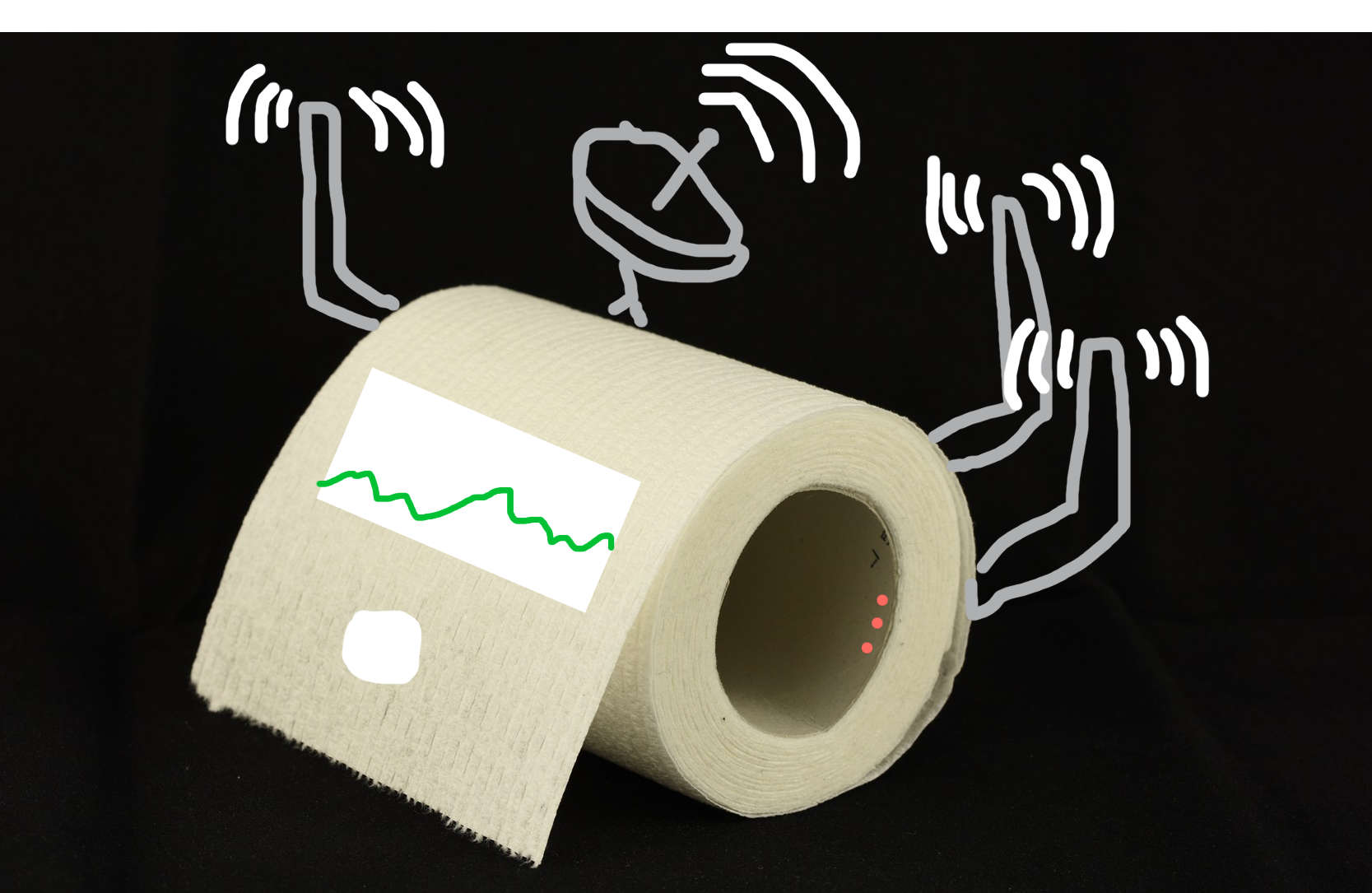Digital rococo – why your shoehorn probably doesn’t need wifi

The basic design principle of keeping things simple is nowhere as needed as in consumer technology.
Because nowhere else is there a greater tendency to overclutter products with pointless, expensive functions that really don’t work that well.
A recent epic involving a man’s eleven hour battle with a wifi-enabled (or rather the opposite) tea kettle is illustrative of an entire genre of cheap (-ly built, but expensively sold), underwhelming, gimmicky attempts at futuristic technology that look and work like a late Soviet attempt at imitating Star Trek.
And that’s before we get to the security implications of millions of deeply insecure, carelessly designed devices chirping away on the internet, forming botnets and mining bitcoin for onanistic Russian hackers.
I’ve previously covered a fundamental lack of innovation, noting many startups and tech companies are essentially putting sexy neologisms and better user interfaces (thank fuck) on functionality from the 1990s – “the cloud” is hipsterspeak for how we pirated Duke Nukem 20 years ago – and now I add that connecting dishwashers to the internet is a mad cargo-cultic scramble to create the impression of building something futuristic while having no clue whither real progress is, and how to meaningfully improve human lives.
It’s not just that the addition of the latest novelty feature to every conceivable product is often obviously superfluous and reveals a tendency to unthinking faddism among the persons responsible for visiting such travails upon humanity, it is moreover the fact that while the “Internet of Things” and smart whatsitcalled and toilets with touchscreens and mp3 players will play a role in the future, it will be smaller than imagined in the current infatuation with a new toy, and even more importantly, the technology currently sucks ass and can’t properly do half the things promised. Which means the maniodepressive nature of industry trends and consumer tastes will in due order turn against it with a vengeance.
This is a good example of a general four-stage cycle of technological development:
- Juvenile enthusiasm – we invent a new technology, and quickly get a bit carried away with it, overhyping both its implications and likely rate of development. Manic adoption, high hopes and speculative torrents of capital follow. “This will change everything”.
- Disappointment – “It’s shit and always will be shit”.
- Years in wilderness – “What, someone is still working on that old blind alley?”
- Doing it properly – “Oh hey, it works pretty well now. I always said it would!”
In more memorable format: “epic!-lame!-ohwait-nowitworks!” (by sheer coincidence, of course – E.L.O.N.)
Here’s a law of nature to keep in mind if you’re tempted to overhype your product:
Disproportionality of hype = magnitude of subsequent ridicule.
For historical examples, see the dotcom bubble, which was based on assumptions the internet would be able to do in 1999 what it’s barely becoming capable of doing now, pre-Tesla electric cars, or the first wave of artificial intelligence hype in the 1950s. Irrational exuberance slid into equally irrational and exaggerated disenchantment and ridicule, while the technology in question slowly matured in preparation for an impressive (and largely unexpected) comeback.
Note that there is nothing preventing the cycle from cycling several times. AI is a good example, with at least two periods of optimism followed by two “winters”. Even this time around, we probably won’t crack general intelligence, and most of the stuff today dubbed “artificial intelligence” is basic algorithms from the 1970s running on a bit (okay, a lot) more computing power.
When you’re building something novel, it’s often better to underpromise and overdeliver. Unless you’re building something actually epic, in which case hype on (Elon).
All in all, I think we’re about ten years from an Internet of Things that saves more work than it demands (what the fuck else should be the primary criterion?).
Now we are in the “potentially promising, but crappy gimmick with too many hopes and mania” phase.
Here’s a prediction: IoT done properly will be based on open, non-proprietary platforms, and as far as possible, closed systems with carefully managed, strictest-need-only contact with the outside world.
Think of the separation of primary and secondary circuits in nuclear power plants.
And there will be wires, at least until wireless security is satisfactorily solved, which won’t be before quantum cryptography (or equivalent technological revolution). Systems connected with wires are not that easy for pokemon-hunting hoodlums to break into from the street, and while decent wireless security exists, the current crop of careless, cost-cutting IoT makers generally do not bother with it, and entirely disregard any subsequent technical support and updates (which would require ongoing costs, and since you’ve already bought their cosmic fridge, you can go fuck yourself in their book).
More generally, “digital rococo”, like it’s close cousin “feature creep”, shows insufficient clarity of purpose – the authors are unsure what their product is, so they try to make it … everything.
It also shows that they don’t know their customers.
Most “smart home” systems are relatively expensive and marketed to rich people. It is precisely those who have the least patience and need for things that waste time and make their lives more complicated.
When you’re rich, you tend to have so much stuff competing for your attention 25 hours a day (accounting for regular time zone crossings) that whatever makes your life easier is invaluable.
Value for wealthy customers is streamlining and simplifying stuff and saving time.
Where exactly do hacking-prone, moody, baroque “smart home” systems that don’t work half the time and are installing updates when you have exactly fifteen seconds for coffee fit into that?
Nofuckingwhere, that’s where.
The only real value rich people currently gain from smart homes is bragging to their neighbours. Which means the primary customers at this stage are wankers, with a much smaller number of enthusiasts largely building their own systems. Personal observation, while anecdotal, supports the hypothesis.
Traditionally, very rich people have a better solution to keeping fridges stocked, laundry laundered, and homes maintained that is yet to be surpassed – hiring people.
Until “smart homes” develop at least the dexterity, intelligence and versatility of an average human housemaid or manservant, to say nothing of their hypergamous enthusiasm, they will be betamax.
In the present iteration, it’s moving entirely in the wrong direction. Clutter is bad.
The only remotely smart appliance in my home is a Roomba that appears to have developed a basic personality, including hobbies such as getting stuck in hard to reach places and eating socks and cables.
The future will be won by those who manage to fit as much fundamental complexity as possible into the simplest user experiences – this is true for literally everything, from cars through appliances to applications and much else besides, including writing, and even economic and political systems. The core value is elegance – a lot beautifully encoded in a little.
And elegance means minimalism and focus on the essential.
What helps me stay occasionally pretend to be organised is not five to-do apps, but precisely the mind space liberated by eliminating noise.
If you’re wondering whether to add features to a product, the likely answer is “no”. If you believe your case might be more complicated, here’s a rule of thumb – is your product something people have at hand most of the time, and might appreciate it having more functionality? If so, it makes sense to swissarmyknify it.
Is it something they use only occasionally, for a narrowly specific purpose that’s essentially solved, and can’t be improved with additional features? Then stick to the essential.
This means smartphones and smartwatches are go, and smart shoehorns (or tea kettles) aren’t.
I’m tempted to start a kickstarter campaign to build those smart shoehorns. With automatic sharing to Facebook and Instagram – “I’ve just put on shoes, worship me. #soleofwit #footwearlife #brogueone #heeloworld”.
Truth be told, this is a good place to reveal that my considerably more technical friend (a nuclear engineer) and me are currently in the process of mounting a theremin coil into a pissoir, yielding a musical instrument that will be played using one’s dick.
It might prove to be popular in Japan. Professional players shall be called thereminstrels.
For jocular purposes, digital rococo is suitable. For serious product design, keep it simple.
To complement Einstein’s tip, “Make it as complicated as it needs to be – but not more.”
Recent Posts
- Uncategorized
Covid-19: alternate origin stories
Pre-Wuhan Covid-19 in Italy, bioweapons research in Russia and China, and curious coincidences. There’s a lot of credible information that…
- Uncategorized
Penisocratic method #2
Exciting year ahead for human space exploration For reasons beyond my understanding, there are people who aren't closely watching how…
- How to fix the world
- Penisocratic method
- Politics
Penisocratic Method #1
Today, let me introduce you to a new post format. Here's the thing: the click-through "tile" design of the website…
- History
- Mood lift
- Politics
- Science!
Why Scotland is Pakistan
I have a huge discovery to share with you: Scotland is Pakistan. Consider: A mountaineous hinterland full of angry bearded…
- History
- Politics
The Asian powderkeg
Right now, Asia is a powderkeg with several simultaneously lit fuses. There are at least four conflicts in Asia from…
- Politics
- Science!
- The Scolding of the Stupid
The vibranium shield of willful ignorance
Nobody is more imaginative than a person who doesn’t want to concede an obvious point. As the internet brought 24/7…



View Comments
If you observe the industrial sector and some very specific b2b wannabe-solutions, similar picture will emerge. The offers would be in a better suit (you have to take better care about the marketing, engineers are sometimes harder to trick in comparison to the average consumer), nevertheless, many of them will be the same lame crap underneath. The real industrial revolutions had been lightened up by people like W.A.T.T, E.I.J.I. and H.E.N.R.Y. Contrary to this (a mind-revolution), we are facing now a self-predicting-feature-revolution which lacks an end game: "look, there is an autonomous-3D-printing-RFIDready-cloud-augmented-reality-bread machine and we have a little idea how it could enhance your business activity, but you have to admit, that this is revolutionary, by the way your competitors have it already". Hmm, first zoophilic porn was also about putting various stuff together, but it wasn't a real breakthrough, was it?
There is no cash for free coffee in the companies and managers get crazy about (and even pay!) tech-Dadaism.
Our company is currently running a project related to the topic of I4.0 (IoT, cloud, big data analytics etc.). I´ve been appointed as the project manager.
The most efficient scenario: send our CEO the link to this article, take only 30% of the planned budget and spend it for 3 weeks rafting in Himalayas (costs covered for Zbyhnev).
I´ll keep dreaming about for the next 5 minutes while drinking coffee (at no charge....for now...until the corporate it tracks me down)
I'll go rafting with you.
Your ELON technology cycle is simple version of gartner hype cycle
http://www.gartner.com/newsroom/id/3412017
The problem that you don't see is that if companies will not develop these "not needed" products now, in "plateau of productivity" time they will simply lose market. That's why now every company develop something "connected" or "machine learning enabled" stuff. Or simply buy small companies that developed this stuff through kickstarter campaign.
I was hoping someone else would have noticed, good link. Thanks.
ELON is catchier :P
I guess the "hype cycle" is best helped with less gullible and more demanding consumers. Which is why I hope the article spreads ;)